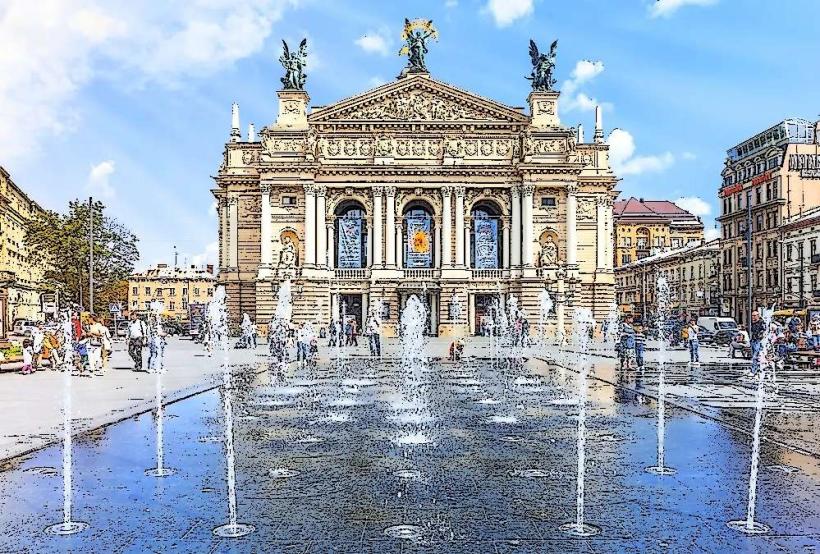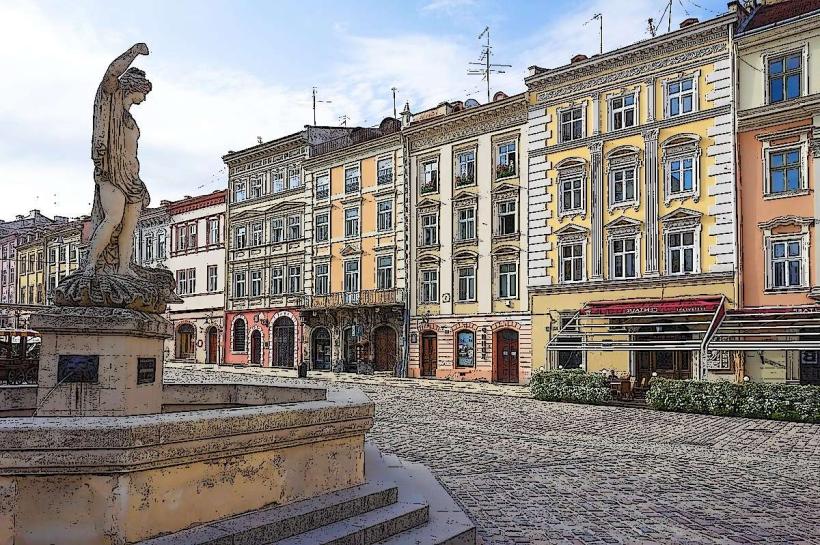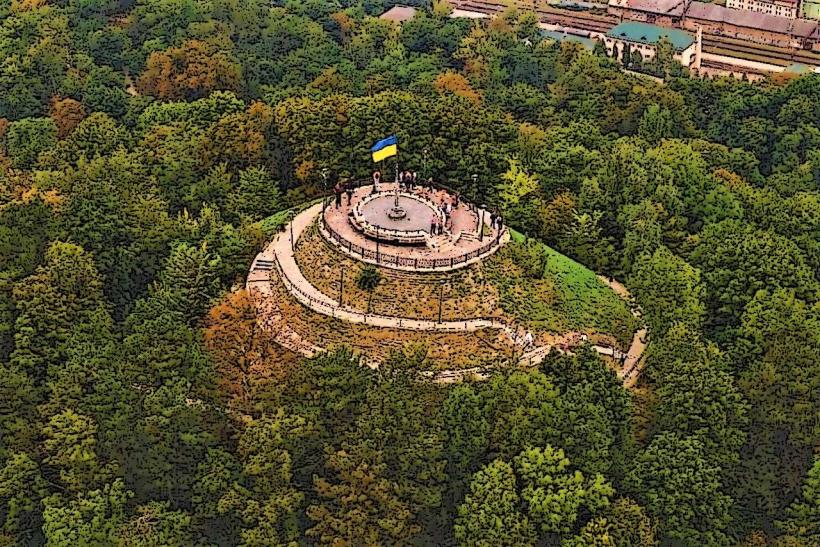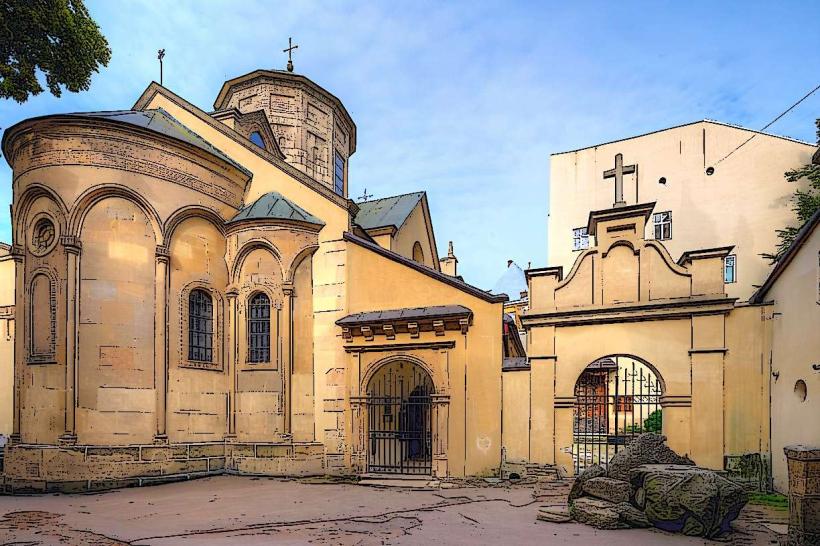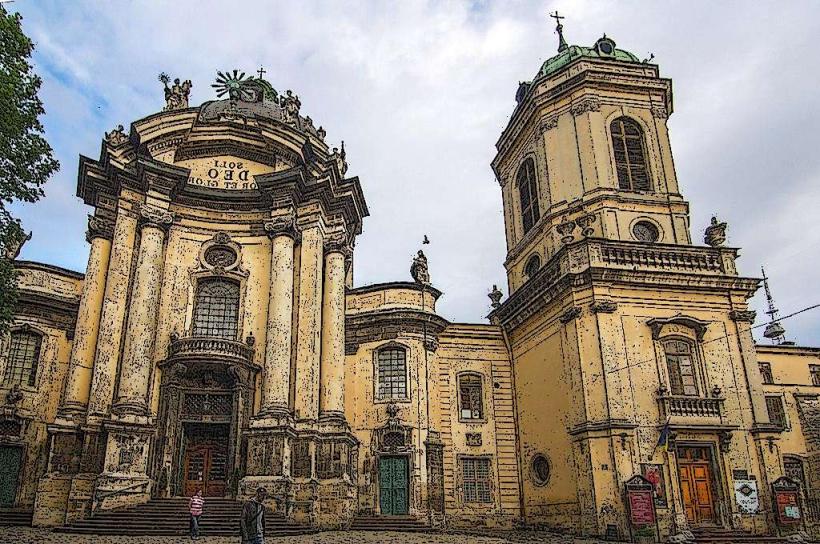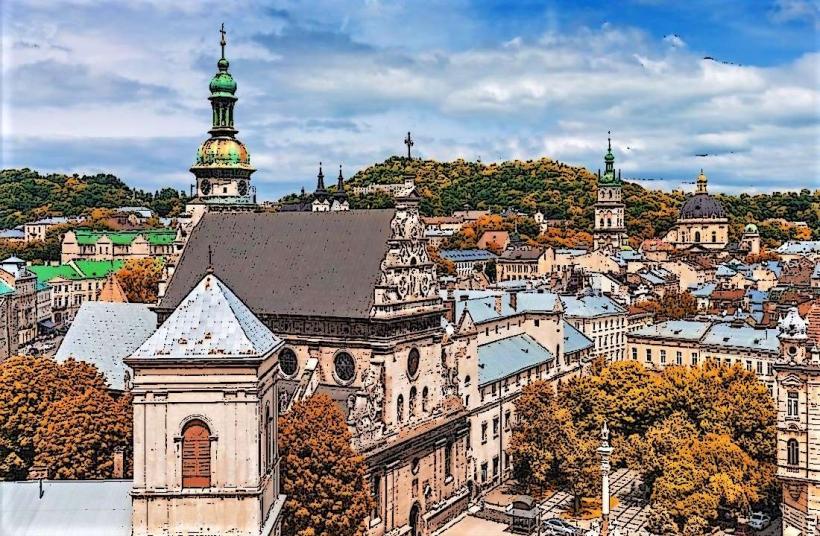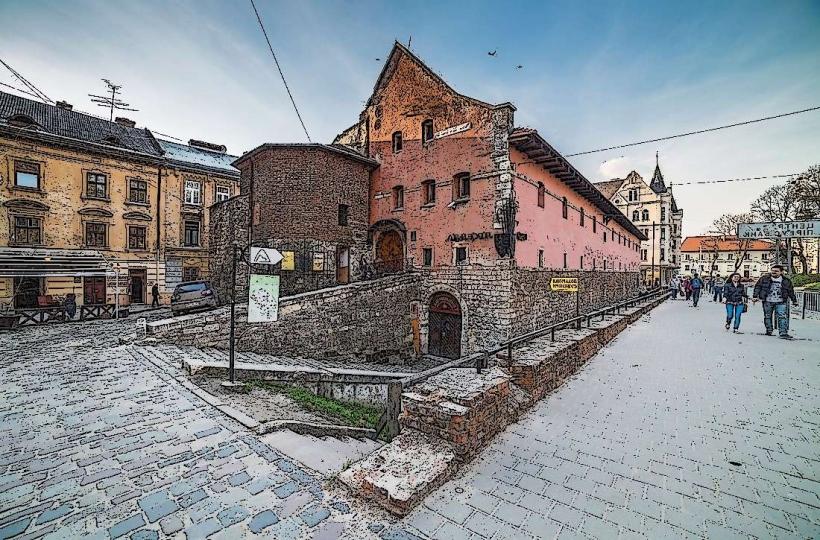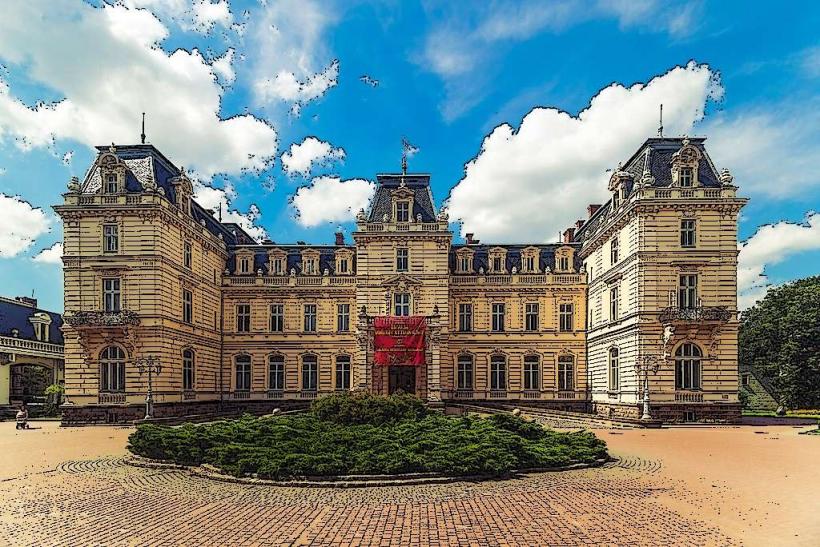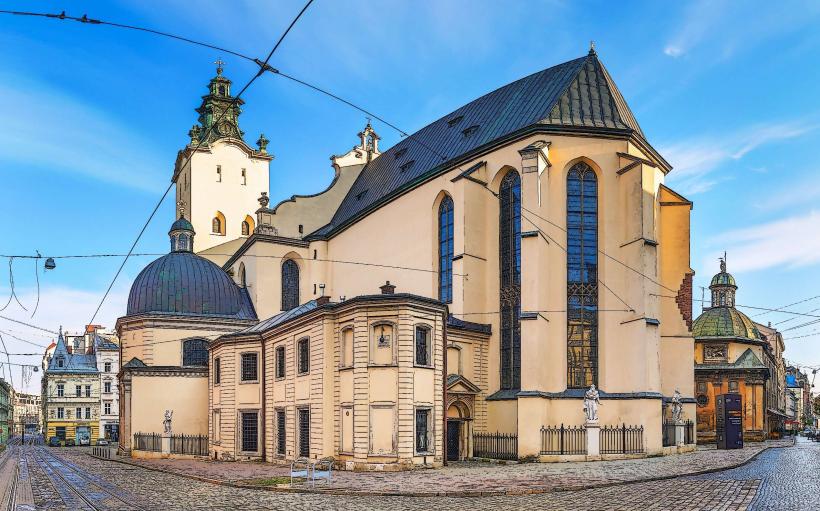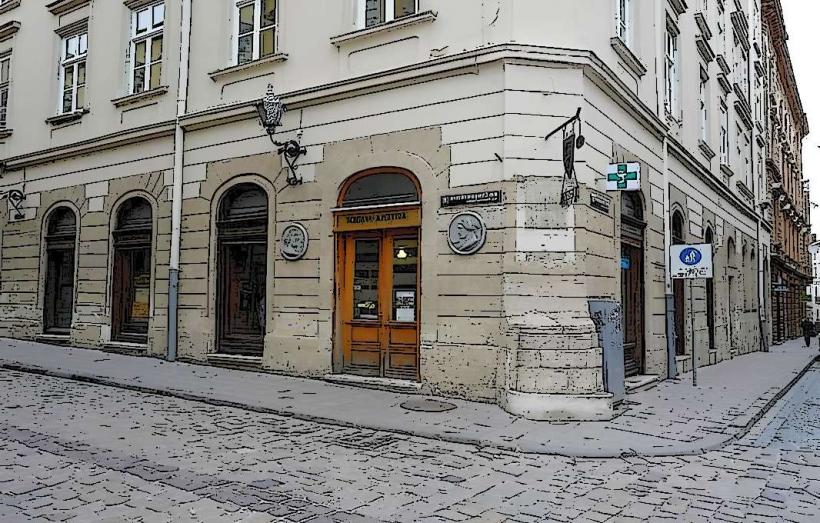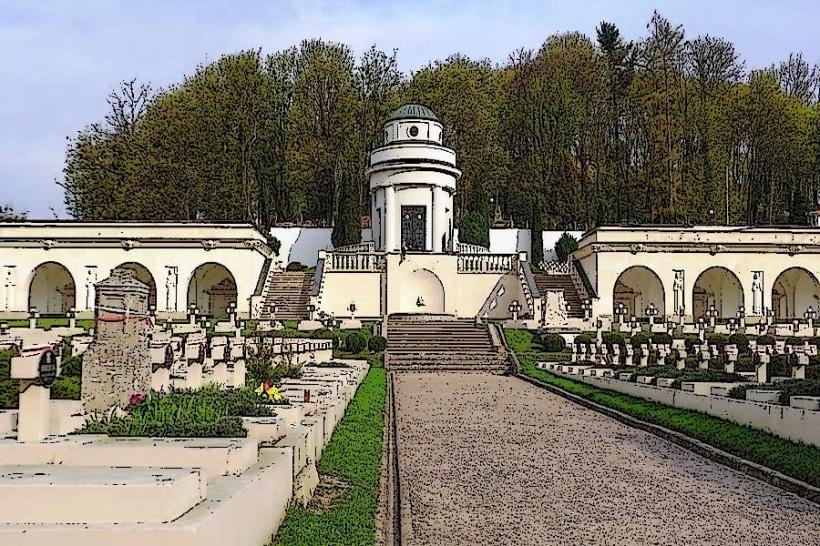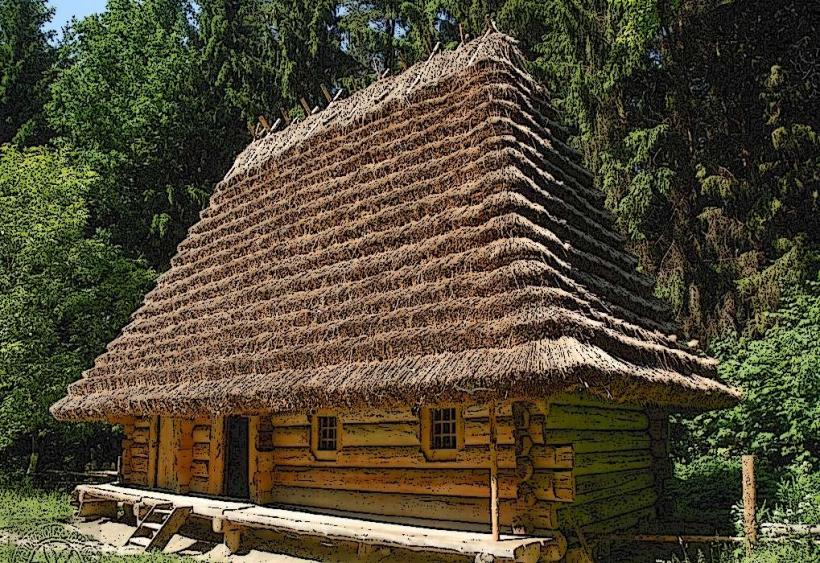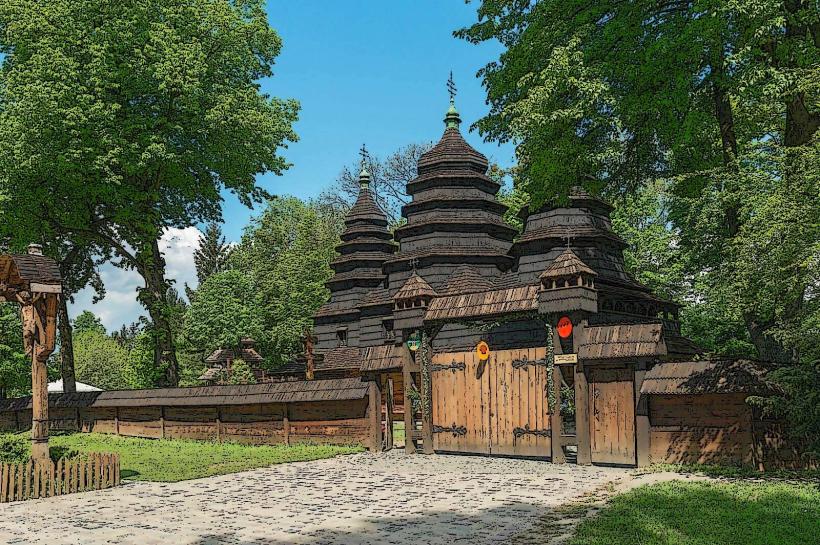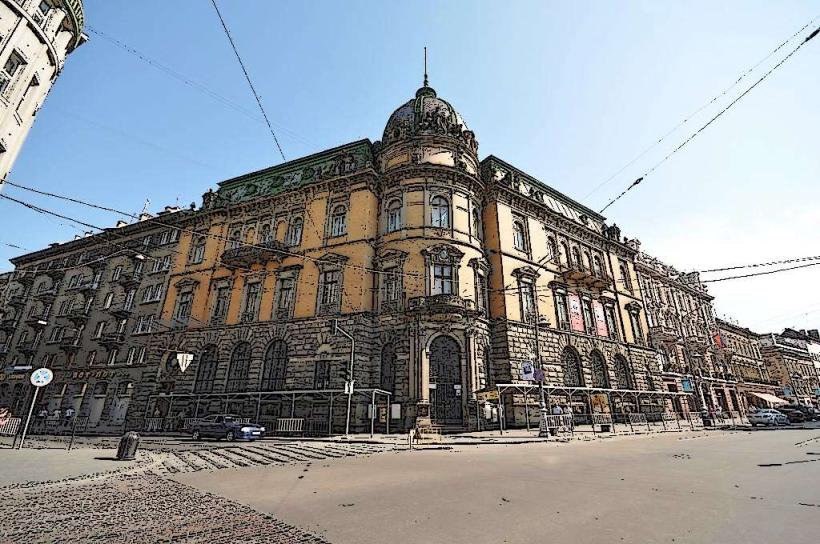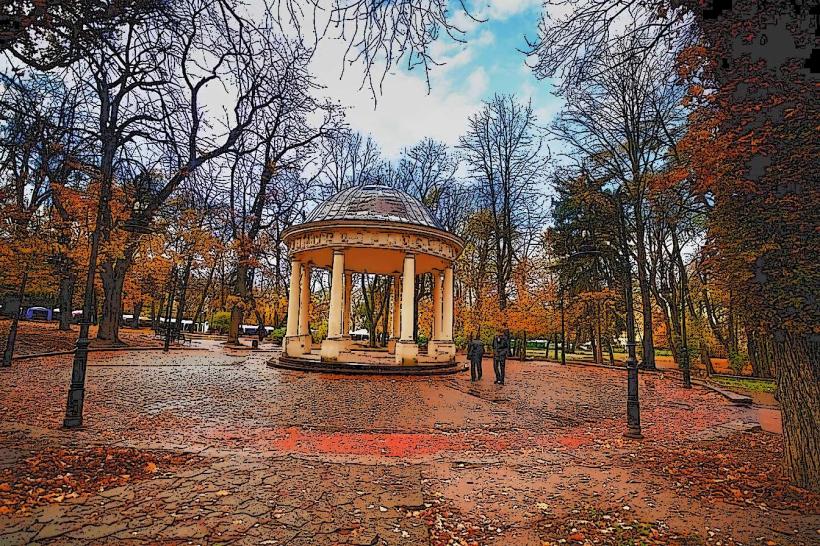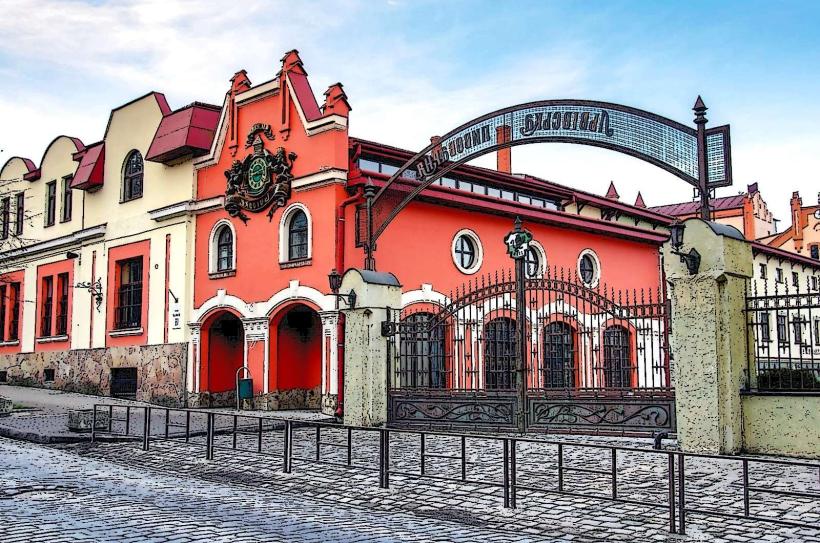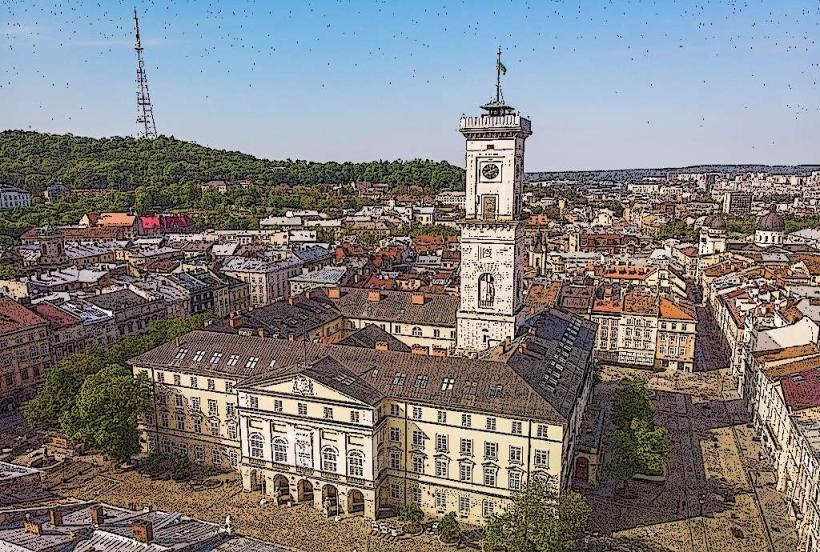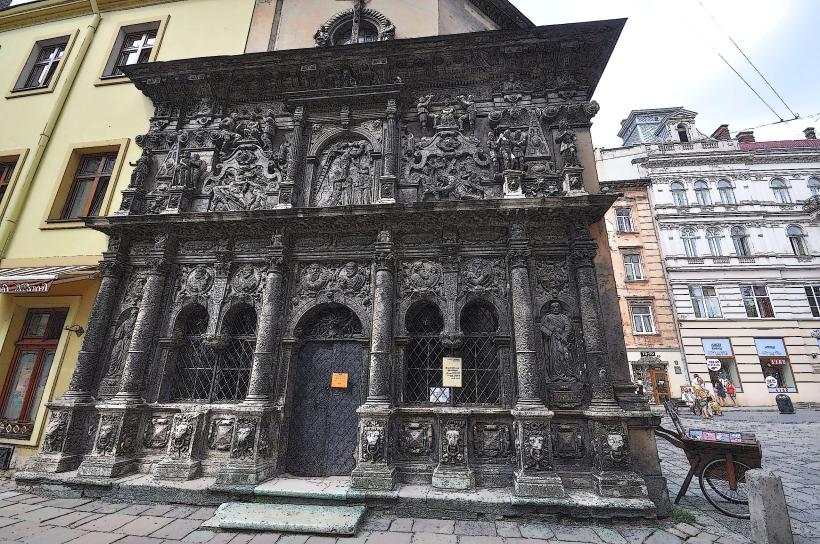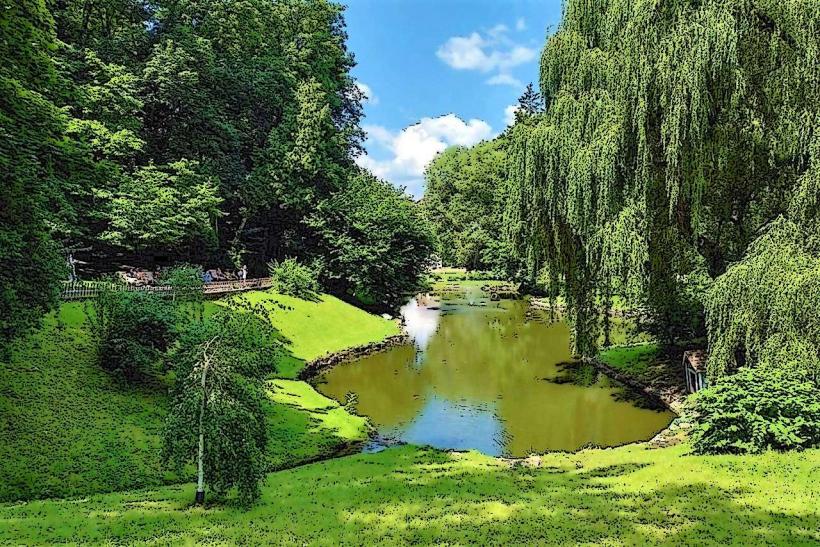Information
Landmark: Church of Transfiguration of Our Lord Jesus ChristCity: Lviv
Country: Ukraine
Continent: Europe
Church of Transfiguration of Our Lord Jesus Christ, Lviv, Ukraine, Europe
The Church of Transfiguration of Our Lord Jesus Christ is an Orthodox church located in Lviv, Ukraine.
This religious structure serves as a place of worship and a historical site within the city.
Visual Characteristics
The church features a prominent central dome, painted in a light blue hue with gold stars. The exterior walls are constructed from light-colored stone, with decorative cornices and arched windows. The main facade is characterized by a large, pedimented entrance. The overall architectural style incorporates elements of Baroque and Neoclassical design.
Location & Access Logistics
The church is situated in the central district of Lviv. It is approximately 1.5 kilometers east of Rynok Square (Market Square). Access is via Velyka Halytska Street. Limited street parking is available in the vicinity, often requiring payment. Public transport options include trolleybus lines 9 and 10, with a stop located approximately 200 meters from the church on Velyka Halytska Street.
Historical & Ecological Origin
The current structure dates back to the late 18th century, with significant renovations and additions occurring in the 19th century. It was originally built as a Roman Catholic church before transitioning to Orthodox use. The site itself has a longer history of religious presence, with earlier structures on the location dating back to the medieval period.
Key Highlights & Activities
Visitors can observe the interior iconography and architectural details. The church hosts regular religious services. Photography inside the church is permitted without flash, but visitors are requested to be respectful of ongoing services.
Infrastructure & Amenities
Restrooms are available within the church complex. Limited shaded areas are present in the immediate vicinity of the entrance. Cell phone signal (4G/5G) is generally good in this central urban area. No food vendors are located directly at the church; however, numerous cafes and restaurants are within a 500-meter radius.
Best Time to Visit
For optimal interior lighting and fewer crowds, visiting between 10:00 AM and 12:00 PM on weekdays is recommended. The church is open year-round. No specific tide or weather conditions are relevant for visiting this urban landmark.
Facts & Legends
A notable historical detail is the church's role during periods of political and religious transition in Lviv, having served different denominations throughout its existence. Local lore sometimes refers to specific saints depicted in the iconography as having protective qualities for the city.
Nearby Landmarks
- Lviv National Opera House (0.8km West)
- Rynok Square (Market Square) (1.5km West)
- High Castle (Vysokyi Zamok) (2.1km Northwest)
- Lviv Historical Museum (1.6km West)
- Armenian Cathedral of Lviv (1.7km West)

